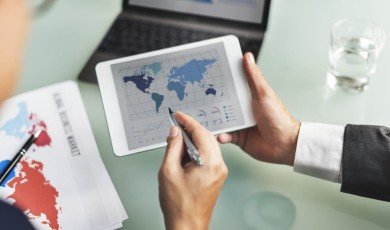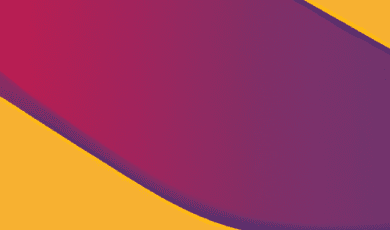
Media and Politics: Who Influences Whom?
By [Your Name], Political Blogger | Date: [Today’s Date]
Introduction: The Ever-Entangled Dance of Media and Politics
The relationship between media and politics is as old as the concept of representative government itself. In our digital age, this relationship has become even more complex, nuanced, and influential. The line between who holds more power—the press or the political class—has always been blurred. Some claim that the media acts as the influential "fourth estate," shaping public opinion and setting political agendas. Others argue that politicians, through regulation or manipulation, can bend the news cycle to their favor. This intricate dance raises a fundamental question: when it comes to media and politics, who truly influences whom?
In this blog post, we will delve into this question by exploring historical precedents, the mechanisms of media influence, the political strategies to control narratives, and the evolving dynamics brought by technology. Join us as we navigate the twists and turns of this powerful interplay, shedding light on its implications for democracy, civic engagement, and the future of information.
The Media’s Role: Shaping Opinion, Setting Agendas
Since the advent of mass communication, media outlets have played a crucial role in forming political realities. Traditionally, newspapers, radio, and television broadcasters were gatekeepers of information; their editorial choices could propel topics onto the national agenda or leave them in obscurity. This power—known as agenda-setting—remains central to understanding the media-politics nexus.
Agenda-Setting Theory and Framing
According to the ground-breaking work by McCombs and Shaw (1972), the media doesn’t tell us what to think, but it tells us what to think about. This means the issues most covered in the media become the most important in the public’s mind. Furthermore, through framing, the media influences how issues are perceived—for instance, whether immigration is viewed primarily as an economic issue, a cultural one, or a security threat. These choices can make or break political careers and policy proposals.
Watchdog or Political Actor?
Media is often described as the “watchdog of democracy,” holding the powerful accountable. Investigative journalism has uncovered countless scandals and prompted political reform, from Watergate in the United States to the Cahuzac Affair in France. The press, in this role, embodies the checks and balances necessary for a healthy democracy.
However, critics argue that the media is not always an impartial observer. Media conglomerates may have vested interests, either commercial or ideological, which can manifest in editorial slants. The rise of partisan media—where outlets cater to specific political leanings—raises questions about echo chambers and polarization. In some cases, media outlets have directly influenced elections by endorsing candidates or providing disproportionate coverage.
Political Power: The Art of Media Management
Politicians and political parties are not passive actors in this dynamic. Recognizing the outsized influence of media, they have developed sophisticated strategies to harness its power.
Spin, Messaging, and Media Manipulation
Political “spin doctors” are experts in crafting messages that resonate with target audiences. By organizing press conferences, releasing strategic leaks, or utilizing “friendly” journalists, politicians attempt to shape narratives in their favor. Whether it’s through orchestrated photo ops or calculated soundbites, political actors actively try to influence what the media covers and how it covers it.
Regulation and Ownership
Governments can also exercise influence over the media through regulation and, in some cases, direct ownership. Laws governing media concentration, public broadcasting, and press freedom vary widely across democracies. In some countries, state influence is subtle, achieved through funding or legal pressure. In others, media repression is overt, with censorship and harassment of journalists.
Social Media: The New Political Battlefield
The rise of social media has revolutionized political communication. Politicians bypass traditional media to communicate directly with voters via platforms like Twitter, Facebook, and Instagram. This disintermediation shifts the balance of power, enabling political actors to shape their image and agenda without editorial filters. However, it also opens the door to misinformation, manipulation, and the viral spread of propaganda.
The Symbiotic Relationship: Influence and Interdependence
While it’s tempting to view media and politics as battling for supremacy, the reality is far more symbiotic. Politicians need the media to reach audiences, legitimize their platforms, and mobilize support. The media, conversely, relies on political events and access to policymakers to produce content that draws readers, viewers, and clicks.
Case Studies: From Elections to Crises
- Presidential Elections: Studies have shown that both French and American presidential campaigns are shaped by media coverage—the volume, tone, and focus of reporting can shift voter opinions significantly.
- Government Crises: During times of crisis, such as the Covid-19 pandemic, official communications and media reporting together form the dominant narrative, setting the public’s understanding of policies and risks.
- Media Scandals: Investigative journalism into political corruption continuously redefines the public’s trust in institutions, pushing reforms and reshaping party landscapes.
This mutual dependence sometimes turns adversarial, especially when the media uncovers wrongdoing or when politicians attack the press for unfavorable coverage. Nevertheless, their fortunes often rise and fall together.
Challenges and Controversies: Misinformation, Trust, and the Digital Age
The information age has brought new challenges. Fake news, deep fakes, algorithm-driven filter bubbles, and declining trust in mainstream media have created a highly unstable environment. Politicians sometimes exploit these phenomena to cast doubt on damaging stories, discredit critics, or amplify their own messaging.
Media literacy becomes crucial for citizens, who must discern credible reporting from manipulation. Independent fact-checking organizations, watchdog groups, and a vibrant civil society play important roles in maintaining the integrity of information.
Internationally, authoritarian regimes exemplify what happens when government influence over media becomes unchecked, resulting in propaganda, censorship, and democratic backsliding.
Conclusion: Navigating a Complex Interplay in Modern Democracy
So, who influences whom: media or politics? The answer is, invariably, both. The media and political actors are entwined in a dynamic, ever-shifting relationship—at times adversarial, at others collaborative. Media shapes public perception and holds power to account, while politicians seek to sway coverage, set policy, and—increasingly—communicate directly with the public.
For democracy to thrive, this relationship must remain balanced. A robust, independent media is vital to inform citizens, question authority, and foster meaningful debate. At the same time, transparency and accountability from political actors are essential to ensure that the media can operate freely, without undue interference.
As technology continues to evolve, so too will the ways in which media and politics intersect. The next great challenge lies in sustaining media independence, promoting digital literacy, and safeguarding democratic discourse in a rapidly changing world. Only by understanding and critically engaging with this interplay can we hope to preserve the health of our democracies for generations to come.








